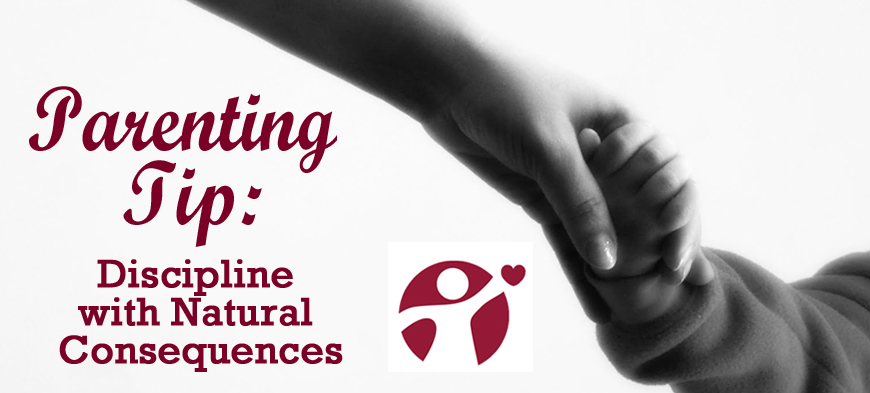The sun is setting. You see that your 8-year-old has left her favorite baseball cap out on the picnic table, and it is supposed to rain. What do you do?
According to Leslie Hundt, Center Coordinator for Ebenezer Child Care Centers with locations in downtown Milwaukee, Oak Creek and West Allis, “If you have asked and reminded her to pick up the cap, you leave the cap outside. When the cap is wet, your child may learn that if she does not pick up her things, they could get ruined.”
Hundt adds, “Discipline with natural consequences is a very effective way to teach children how to make better choices and be more responsible for their actions. It is not simply revoking one of your child’s favorite privileges. True natural consequences automatically happen and result in an unpleasant situation as a direct result of your child’s choices.”
How does discipline using natural consequences work? Here are some tips:
The consequence should be related to the action.
If your child spills milk on the kitchen floor. The consequence is to clean it up as opposed to not using their iPad today. The iPad and milk do not relate to each other but spilling and cleaning do.
Another example is an older child who does not clean up their room. The natural consequence is their laundry does not get done. When they need that special item and it is still on the bedroom floor, that is a natural consequence. They do not have the item because the room did not get clean.
The consequence should be respectful.
Consequences should not involve humiliation or shame. Using shame and humiliation makes a bad situation worse by removing the opportunity for learning a positive lesson. Instead, your child may learn how to “tune you out” rather than listen to your words.
The consequences should be safe.
Allowing your child to be put at risk is not okay. Although a natural consequence for going outside without mittens is your child may get frostbite or the natural consequence for going outside without sunscreen is sunburn, these choices put your child in danger.
In these instances, giving the child a choice is better than a natural consequence. Using a question such as, “Which mittens will you wear? Or What time will you put on your sunscreen, 8 or 8:30?” allows your child to choose, but you are controlling their safety by offering appropriate choices.
The consequence should be reasonable.
The consequence should be appropriate for the age of the child. A 4-year-old who drops a cup of juice on the floor will be able to clean it up if you give him the towel and talk him through the steps. A 2-year-old will be able to clean up the mess if you do it together and show him what to do. A 10-year-old should be able to do all the cleaning himself.
Using natural consequences helps children get ready for adulthood by teaching them to think of the potential consequences of an action first and then making an appropriate choice.
Ebenezer Child Care Centers is a not-for-profit, locally based agency committed to providing early childhood programs from the heart. The agency prides itself on being different from other childcare providers in that it offers a home-like atmosphere; individualized, nurturing care; and a structured curriculum that is virtues-based for every child’s developmental stage.
Every Ebenezer Child Care Center focuses on all aspects of a child’s development: cognitive, physical, emotional, and social. In addition to providing quality care, the agency also offers other educational programming all aimed at helping parents.
The agency has locations in downtown Milwaukee, Oak Creek, and West Allis/Wauwatosa. The agency’s main office is located at 1138 S. 108th Street, West Allis. For more information, please visit the agency’s website at www.ebenezerchildcare.com.

